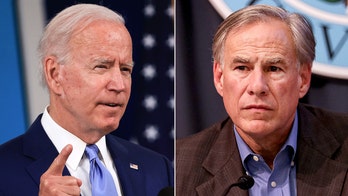The White House pushed back Monday on a report that administration officials had examined the impact of a national sales tax as a way to help close the federal budget's gaping deficit.
"The president has not proposed this idea nor is it under consideration," White House Press Secretary Robert Gibbs said.
Talk of the tax was kicked up earlier this month when White House economic adviser Paul Volcker said the government should consider imposing the so-called value-added tax. The New York Times then reported Sunday that President Obama's economic team had calculated the impact of a 5-percent VAT.
But the White House denied the claim, saying such calculations are "widely and publicly available" from outside analysts, and that the administration had not done any number-crunching of its own.
White House spokesman Matthew Vogel told Fox News that Obama "is not proposing to cut the deficit at the expense of middle-class families."
Still, while Obama has pledged to eliminate deficit spending by 2015, many doubt he is willing to make the spending cuts necessary to achieve that and suggest he'll be tempted to turn to new taxes like the VAT.
The so-called value-added tax is one that's imposed at each stage of production. Take bread, for example - the VAT would be imposed when wheat goes to market, when it gets made into bread, when the bread goes to the store and again when the consumer buys it.
William Gale, a senior fellow at the Brookings Institute, estimated that a 5 percent VAT would raise about $700 billion annually for the federal government.
"Now, we would not want to do that right now while the economy is in a recession. I think we would want to phase it in slowly over time," he said. "If you raise enough money with the VAT, you can use a significant chunk of it to reduce or offset some existing taxes -- whether it's the income tax or the corporate tax."
The reported calculation also sought to carve out enough money to cut the corporate income tax, which some European nations that use a VAT have done to soften the impact.
But a value-added tax is regressive, meaning the poor and the rich pay the same amount, putting a greater relative burden on the poor.
While Vogel said the president continues to push for tax cuts and would not propose any deficit-cutting measures that would hurt middle-class families, some argue Obama has already broken that pledge by embracing elements of the health care reform law that tax medical equipment like wheelchairs regardless of income.
Analysts continue to question whether the president can keep his pledge to cut the deficit, without raising taxes on more than just the wealthy.
"If we really want to cut the deficit in the next five to 10 years, we need to take a look at tax options, and if you are talking about a really significant chunk of revenue, value-added tax is really the only option," Gale said.
A newly appointed debt commission will report on options to reduce deficits in December.
Fox News' Jim Angle contributed to this report.




